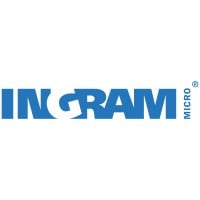
Gainwell Technologies
For 50 years, our nation’s federal Medicaid program has worked to improve the health, safety and well-being of America’s most vulnerable populations: low-income families, women and children, seniors, and those with disabilities. With positive health and cost outcomes that pierce inequities and impact economies, the success of these programs is inextricably tied to the prosperity of communities, individual states and the nation as a whole. We think that demands respect and, more importantly, is deserving of a lifetime commitment from innovators who can help those who operate within and around health and human services evolve — in any market at any stage. At Gainwell Technologies, that’s our sole focus. Built across more than five decades, Gainwell has intentionally seized opportunities to advance its digitally enabled services to meet agencies, health plans and MCOs where they are on their modernization journeys and propel them into the future of public health. Our commitment to innovation, deep experience and ability to leverage insights from customers across 50 states has allowed us to expand on next-generation, cloud-enabled technologies. Today, Gainwell offers one of the most comprehensive suites of scalable services and solutions on the market — all proven to deliver cost savings, better patient outcomes and an improved provider experience. Equally important to our expanding technologies and results: We bring ideas that bring policies to life.






